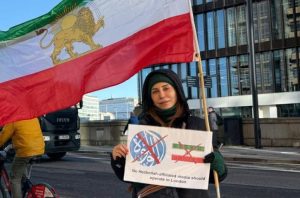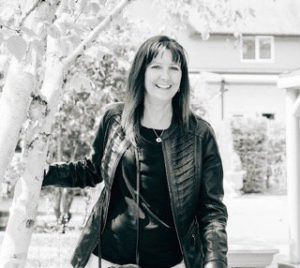Zille shakes up Jozi mayoral race

The possible return of Helen Zille to the political front line as the Democratic Alliance’s (DA) mayoral candidate in Johannesburg has set off a ripple effect across the city’s political organisations, prompting opposition parties and the ANC to reassess their own leadership offerings ahead of the 2026 local government elections.
While the DA deliberates on whom to formally place as its mayoral candidate, senior party officials from the other parties including the ANC have expressed worry that Zille being in the mix would force them to change their election strategy and field stronger candidates to challenge her.
Zille, the DA federal council chair, a former mayor of Cape Town and former Western Cape premier, remains one of the DA’s most recognisable political figures and is credited with building the party’s administrative credibility during her leadership.
Her entry into the race would dramatically reshape the political terrain in a city that has been plagued by leadership turnover, coalition fragility and deteriorating service delivery.
In the DA itself, Zille’s potential candidacy is not without internal debate. Some party members believe her leadership experience and administrative record make her the strongest available option to stabilise the city’s governance.
Others are concerned that her combative style and controversial public statements could alienate centrist voters or complicate future coalition negotiations.
“She brings a level of seriousness and experience that no one else in the party has right now,” a DA official said.
“But there’s a question about whether her style will attract the support the DA needs in the townships and the greater Johannesburg.”
Zille has confirmed her interest in the position and has told the Mail & Guardian that she managed to apply for the position before the deadline last Friday, adding that she was confident that her application would be supported by internal structures who have canvassed her to enter the race.
The 2026 municipal elections are expected to be fiercely contested, particularly in Johannesburg, where no single party has secured an outright majority since 2016.
The city’s role as the economic hub of the country makes it a battleground in the political contest for urban governance. With Zille entering the race, the mayoral contest is set to become a test for all political parties who have to field stronger candidates to challenge Zille.
The ANC, which currently governs Johannesburg through a fragile coalition, is facing renewed scrutiny over its candidate, Dada Morero, whose political standing has been weakened by the recent disbandment of his regional executive structure after its term expired earlier this year.
The Johannesburg regional executive committee, which is chaired by Morero, is also being forced to find a stronger candidate to challenge Zille following the disbanding of his branch in June when its term expired. The expiration allows stronger contenders to put their names up for the regional elections, thereby also fighting for the mayoral position.
Morero’s brief first tenure as Johannesburg mayor in 2022 lasted less than a month and was marked by controversy. His current term, which began in August 2024, has also been precarious.
A senior official in the ANC’s Greater Johannesburg region told the Mail & Guardian that the party is under growing pressure to field a stronger candidate that can represent the party strongly, even in the face of a Zille challenge.
“We’re in a difficult position. The emergence of Zille forces us to think seriously about a stronger alternative. Morero has been strong, but we ask ourselves if he can withstand a challenge against Zille in a mayoral challenge. The problem is that he remains the strongest candidate in the region, unless they can deploy someone in the national leadership,” the regional leader said.
At the upcoming ANC regional conference, Morero will contest the chairperson position against his former deputy, Loyiso Masuku. For Masuku, a victory could bolster her chances of becoming the ANC’s preferred mayoral candidate for the 2026 local government elections.
The city has seen at least six mayors since 2021, and the ANC’s ability to retain control has depended on fragile alliances with parties such as Al Jama-ah and the Patriotic Alliance.
Public criticism over poor service delivery, budget irregularities and persistent infrastructure failures has further eroded confidence in the party’s local leadership.
ActionSA is also grappling with strategic questions about its mayoral candidacy. The party’s founder, Herman Mashaba, previously served as mayor under a DA-led coalition and remains its most recognisable figure.
His departure from the DA in 2019 and subsequent formation of ActionSA allowed him to capitalise on dissatisfaction with the city’s governance. However, the party has since redirected its focus to national expansion, and internal debates have surfaced over whether Mashaba should be re-deployed to Johannesburg in 2026.
According to a senior ActionSA councillor, the prospect of a Zille candidacy has forced the party to consider its leadership options more urgently. “If she is selected by the DA, which we believe she will, we will need our biggest contenders including the president to run because he remains our strongest candidate in the city,” the councillor said.
But, early this month, Mashaba “shrugged off the claims” that he’s planning another run for Johannesburg’s mayoralty. He told EWN that ActionSA has not yet formally selected its mayoral candidates for key municipalities, and emphasised his intent to back other leaders within the party for now, effectively neither confirming nor denying a personal return to local politics.
For smaller parties that have gained influence in Johannesburg through coalition arrangements, the emergence of a high-profile DA candidate presents a new challenge.
The Patriotic Alliance, Al Jama-ah, and the Economic Freedom Fighters (EFF) have all played kingmaker roles in the city since 2021, using their positions to negotiate seats on the mayoral committee and other executive roles.
But Zille’s possible candidacy could polarise the electoral contest, pushing voters towards more defined choices and reducing the leverage of smaller parties in post-election negotiations.
The EFF, which has styled itself as the radical alternative to both the ANC and the DA, has not indicated whether it will field a mayoral candidate in Johannesburg.
Its electoral support in the city has remained relatively flat since 2016, and its role in coalition politics has been largely tactical. However, with the possibility of a high-profile DA candidate in the race, the party may be forced to clarify its position on executive leadership.



